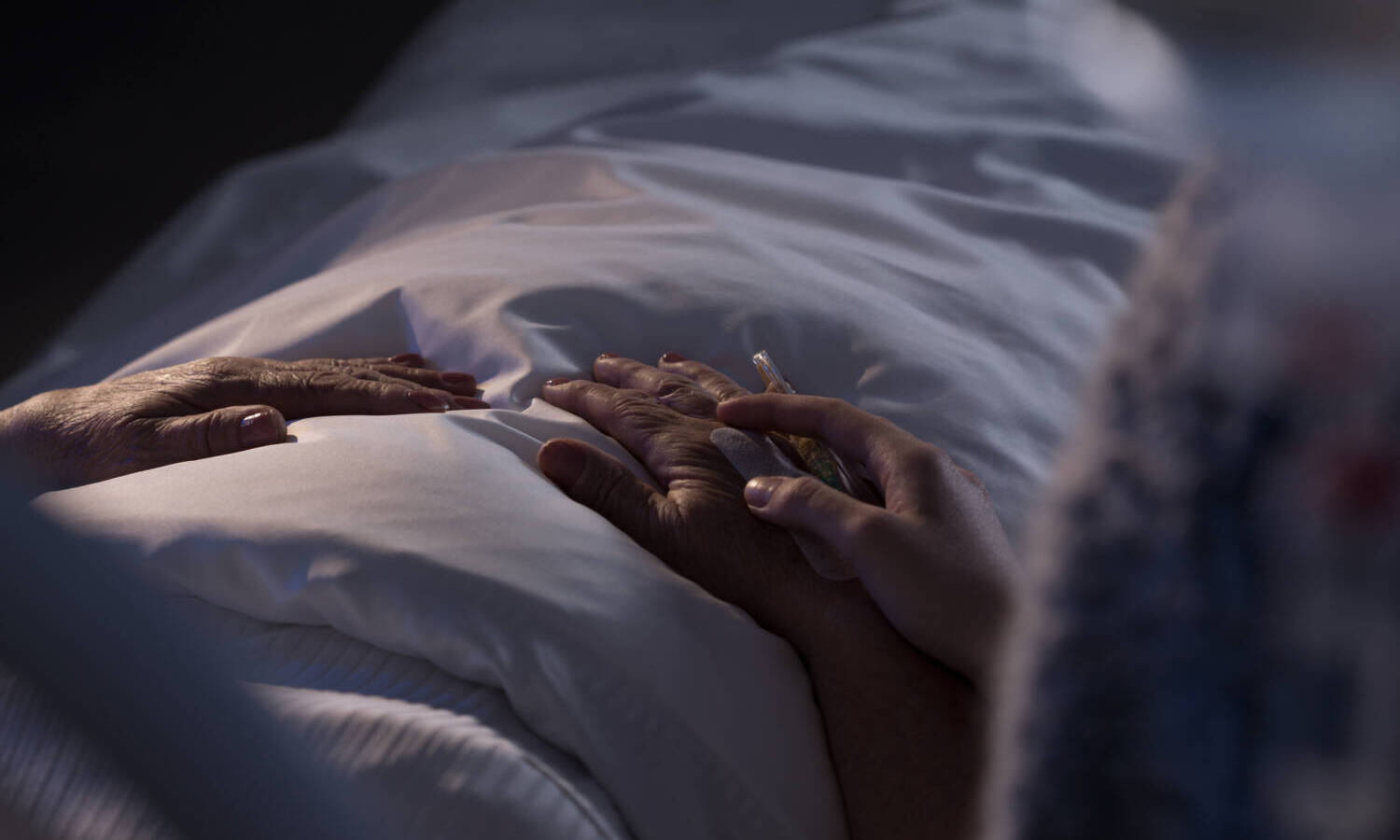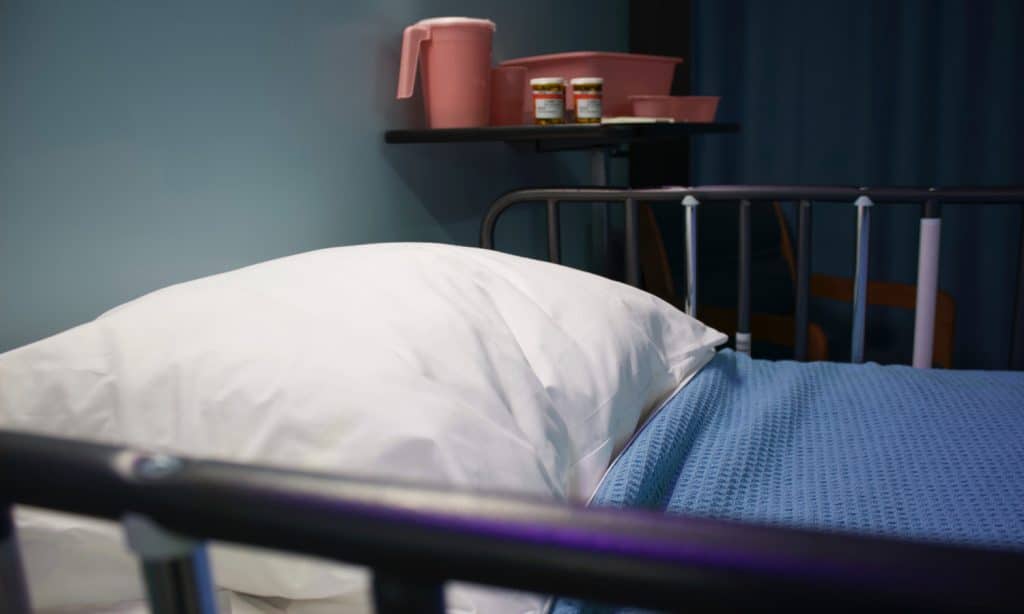
Should hospitals allow cannabis for the terminally ill?
This article originally appeared on Cannabis.net and has been republished with permission.
There are tons of questions that overwhelm patients: how much cannabis to use, what method of administration is best, how often to take it, and more. In these circumstances, most patients are left to their own devices when it comes to deciding how to consume cannabis. And even then, doctors still don’t feel equipped with the right knowledge to prescribe cannabis as a medicine or as part of their therapy.
However, we are severely limiting the impact cannabis could have on the lives of patients, particularly the terminally ill. There is already a staggering amount of evidence that cannabis can make life easier for people with cancer, chemotherapy and radiation, Parkinson’s disease and more.
Photo by Kieferpix/Getty Images
So why can’t patients receive cannabis medication in the hospital, monitored like traditional medication?
California is a pioneer
In December 2021, California Governor Gavin Newsom caused a stir when he signed Senator Ben Hueso into legislation that would give locals more choices about end-of-life options, with the requirement that certain health facilities and hospitals treat terminally ill patients who die Drug use would allow marijuana for pain relief or as part of their treatment.
“It is inconceivable to me that in a state where medical cannabis was legalized more than 25 years ago, the most deeply afflicted being treated in our state’s health facilities would not have access to this tried and true, effective and prescribed treatment” , explains Sen. Hueso. “Instead, terminally ill patients in California healthcare facilities are given heavy opiates that rob them of their precious final moments with family and friends. This is a simple but critical step that will bring relief, compassion and dignity to terminally ill Californians.”
The law, officially known as SB 311 and nicknamed Ryan’s Law, is named for California native Ryan Bartell, who was also a US Coast Guard veteran and died in 2018 after battling pancreatic cancer. He spent his final weeks in the hospital, where he was given fentanyl and morphine to help him manage his pain and get to sleep. His family tried to help him by giving him medicinal cannabis, but the facility said it wasn’t allowed. As a result, his family had to spend valuable time looking for a facility that would then allow MMJ to be used. Unfortunately, he only lived a few weeks. With this law, no other family or patient will have to go through this hardship again.
“In the invaluable final few days while Ryan was battling stage 4 pancreatic cancer, I experienced firsthand the positive effects of medicinal cannabis on my son’s well-being, as opposed to the harsh effects of opiates,” stated Jim Bartell, SB311 Sponsor and Ryan’s father. “Medical cannabis is an excellent option for relieving pain and suffering in the terminally ill, but most importantly, it serves to offer compassion, support and dignity to patients and their families in the last days of their loved ones. Looking at each other, holding Ryan’s hand and telling him how much I loved him in his final moments would not have been possible without medicinal cannabis.”
RELATED: Terminally ill Californians will have access to medical marijuana in hospitals
SB 311 requires healthcare facilities to place appropriate restrictions on the storage and use of their medical cannabis by patients to ensure they and other patients and healthcare facility staff are safe. The rules do not apply to those receiving emergency care and in facilities where vaping and smoking cannabis is prohibited. Additionally, the law does not require the healthcare facility to be responsible for providing cannabis to patients, nor does it require them to dispense cannabis from their on-site dispensary.
 Photo by Bret Kavanaugh via Unsplash
Photo by Bret Kavanaugh via Unsplash
RELATED: Should cannabis be part of hospice care?
In addition, the law includes a haven clause that would allow entities to stop complying with the law if a federal agency initiates a criminal prosecution. However, the U.S. Department of Justice is not permitted to use federal funds to interfere with state medical cannabis laws. The Biden administration has also indicated that it would not interfere with state MMJ laws. “With this endorsement from CMS and government safeguards, we are confident that healthcare facilities have the necessary authority to implement these regulations while ensuring the safety of other patients, guests and healthcare facility staff, compliance with other government laws, and the safe operation of the health facility,” explains Sen. Hueso.
Bringing compassion into compassionate caring
The term “compassionate care” is thrown around so lightly. It’s common but improper.
Because cannabis is still illegal under federal law, hospitals and healthcare facilities cannot allow their patients to use cannabis and risk paying fines or even losing federal funds. But hospitals are where you’ll find some of the patients who need cannabis most, particularly those in palliative care struggling with terminal illnesses.
RELATED: How a pediatrician uses marijuana and CBD in palliative care
We need more legislation like SB 311 across the country to ensure patients have access to cannabis when they need it and can use it safely under the supervision of qualified healthcare professionals who have the confidence to do so.
Otherwise, there really is no compassion in compassionate caring.
This article originally appeared on Cannabis.net and has been republished with permission.

Post a comment: